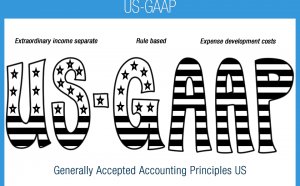
Financial Accounting Summary
This is a summary of the topics covered in Chapter 1: Introduction to Accounting under the Accounting 101: The Basics tutorial series. You can always check the full lessons anytime.
What is Accounting
Accounting is regarded as the language of business. It is a means through which business entities communicate information to different users.
The American Institute of Certified Public Accountants (AICPA) defined accounting as: "the art of recording, classifying, and summarizing in a significant manner and in terms of money, transactions and events which are, in part at least of financial character, and interpreting the results thereof."
Purpose of Accounting
The AICPA also provided this definition: "Accounting is a service activity. Its function is to provide quantitative information, primarily financial in nature, about economic entities that is intended to be useful in making economic decisions, in making reasoned choices among alternative courses of action."
The American Accounting Association (AAA) defined accounting as: "the process of identifying, measuring and communicating economic information to permit informed judgment and decision by users of the information."
Based on the above definitions and the very nature of accounting as the language of business, it is evident that the basic purpose of accounting is to provide information needed by users in making economic decisions.
These users include: current and potential investors, management, lenders, creditors, the government, employees, customers, and the general public. These users have varied interests and therefore have different information needs.
Branches of Accounting and Areas of Practice
Accounting is one of the oldest business disciplines. It has never failed to provide opportunities to career-seekers. The high demand for accounting services makes it a stable profession amidst economic fluctuations.
Different fields of specialization have evolved over the years. Today, holding a certification in a specific field gives the holder an edge over those who are uncertified.
The branches of accounting (fields of specialization) include: financial accounting, management accounting, cost accounting, auditing, tax accounting, accounting information systems, fiduciary, and forensic accounting.
Accounting professionals work in at least one of the 4 major areas of accounting practice: public accounting, private accounting, government accounting, and accounting education.
Accounting professionals in public accounting work in CPA firms or individually in providing accounting and auditing services to clients. An accountant in private accounting is hired by a business to work as an employee of that entity. Government accountants work in the government and its agencies. Accounting education or academe includes accountants who pursue careers as instructors, reviewers, researchers, and authors.
Types and Forms of Businesses
The three major types of businesses are: service business, merchandising business, and manufacturing business.
Service businesses offer intangible products to customers using their skills and expertise. Merchandising businesses buy goods and sell the same at higher prices. Manufacturing businesses purchase goods and use them to make new products that are to be sold.
River poker river poker iran
YOU MIGHT ALSO LIKE



Share this Post
Related posts
Financial Accounting Careers
As a financial accountant, you may choose to work in public accounting (doing jobs for multiple business clients) or private…
Read MoreLearn Financial Accounting
Nano learning breaks instruction into self-contained modules that can last from two to 15 minutes. These small lessons focus…
Read More










